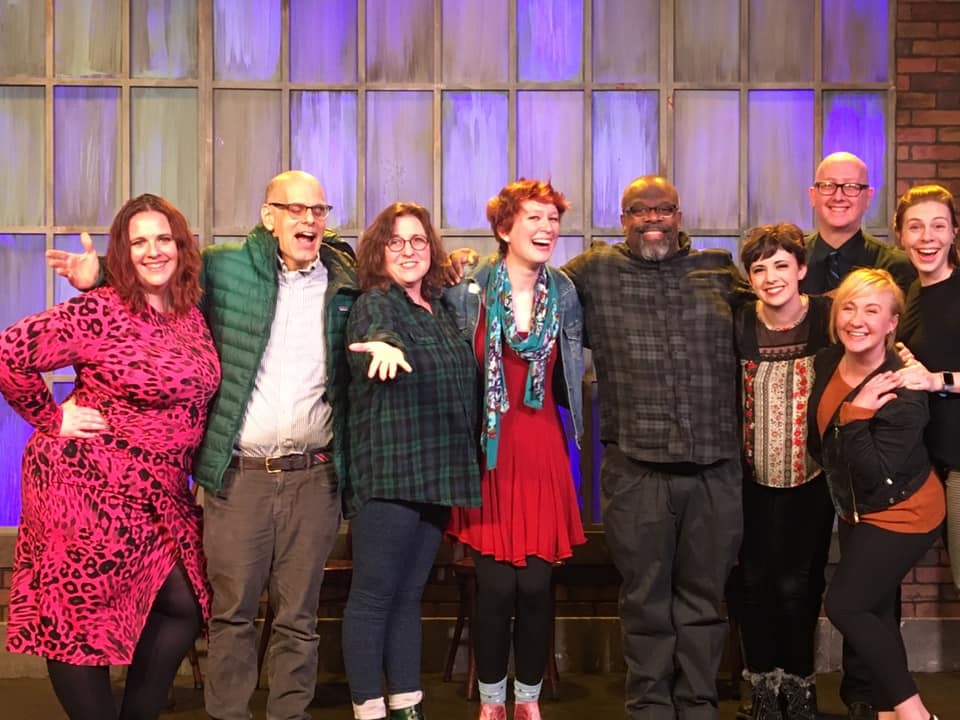4 Things You Need to Help You Take More Risks

Risk. When we think about taking a risk we usually think about disaster. We certainly don't think about succeeding on the first try.
That's how I used to think. I thought risks were supposed to be painful. I assumed taking a risk meant I would fail miserably and the learning would be in the doing and the lessons would come later down the road.
Risk never seemed to result in immediate success, until last Sunday night.
John Hildreth and I were doing our show, Jimmy and Johnnie, with our special guest, Dee Ryan. John has a long history with Dee going back to the ’90s at Second City and I have gotten to get to know her even better over the last four or five years playing with us. We are all the same generation and there is a lot of mutual respect and trust among ourselves, which it makes it easier to take risks.
Dee had been talking before the show about a form she had done at the Chicago Dramatic Improv Festival with Joe Bill and Dave Razowksy. It was called a Chekhov, after the playwright. Essentially, it’s a mono scene set in one location and the improvisers play one character the whole time with a lot of entrances and exits.
So we decided to try it. Dee explained that it would start with one of us having a conversation with an audience member to get information to inspire us the mono scene. We decide we would try it with the three of us in chairs instead of one, for more support. To end the piece we were supposed to bring the chairs back up and finish the conversation with the audience member. This would bookend the form.
I was both afraid and excited. Sometimes it’s fun to try new things, when I am in the mood. And that night, I was in the mood.
John always seems much more open to trying new things than I do, which I appreciate, but I’m really proud that all of us were open to trying something new that night.
The show went better than I expected. Not only was it really funny, but it was well received from the audience. I felt like we accomplished something as a group. It was satisfying, and I like playing a little slower and more emotionally than we normally play.
It was a success the first time out of the gate. What the fuck? That’s not supposed to happen. And it did. I felt great.
On the car ride home, I thought about how I look at taking risks as learning by failing.
The idea that you could take a risk on stage and have it payoff instantly was a new concept to me. Even though I am sure it has happened to be many times before, it was the first time I was aware of it.
Maybe my negative outlook life has clouded me all these years, but it was great to try something and have it work out so well. It got me thinking of all the things we have done right over the years that allowed us to take such a big risk. Here’s what I came up with:
- Find People to Play With Whom You Trust
It’s always easier to take risks with people you trust. I have seen this in my classes all the time -- the risks students take on the first day of class versus the last day of class are much different, since over the course of the class they have built a level of trust. My overall trust was in John and Dee’s ability and talent, and I knew that regardless of what happened, we could pull off an entertaining show for the audience. So to take risks on stage, make sure you find people you can trust to play with. It usually takes time to find the right people, so have some patience. When you find them, your work will blossom. - Don’t Have Any Expectations
This is hard, especially when you are doing a show in front of a paying audience where you would like to get a lot of laughs and be admired as the greatest improviser ever. I think part of the reason it felt like such a huge success to me is because I’ve learned that when I try something new, I lower my expectations, and I knew there was a good chance this might not be a killer show. And when it is a killer show, it’s even that much better. - Don't Do It Alone
There was something powerful in committing to take a risk before the show started. It made me feel like we had each other’s backs more than I normally do on stage. In a strange way, it gave me more freedom to make mistakes and take some chances that I normally don't take because we are on the same page about figuring out together.
- Know You Are Never Going To Do It Perfectly
Having a show go well is better than having a show that goes perfectly. There is no such thing as going perfectly. For example, even though I thought we nailed the form the first time out, we forgot to bring the chairs up and end the form with a conversation with an audience member. So what. This did not take away from what we did, and it reminded me that, "it's about progress not perfection."

